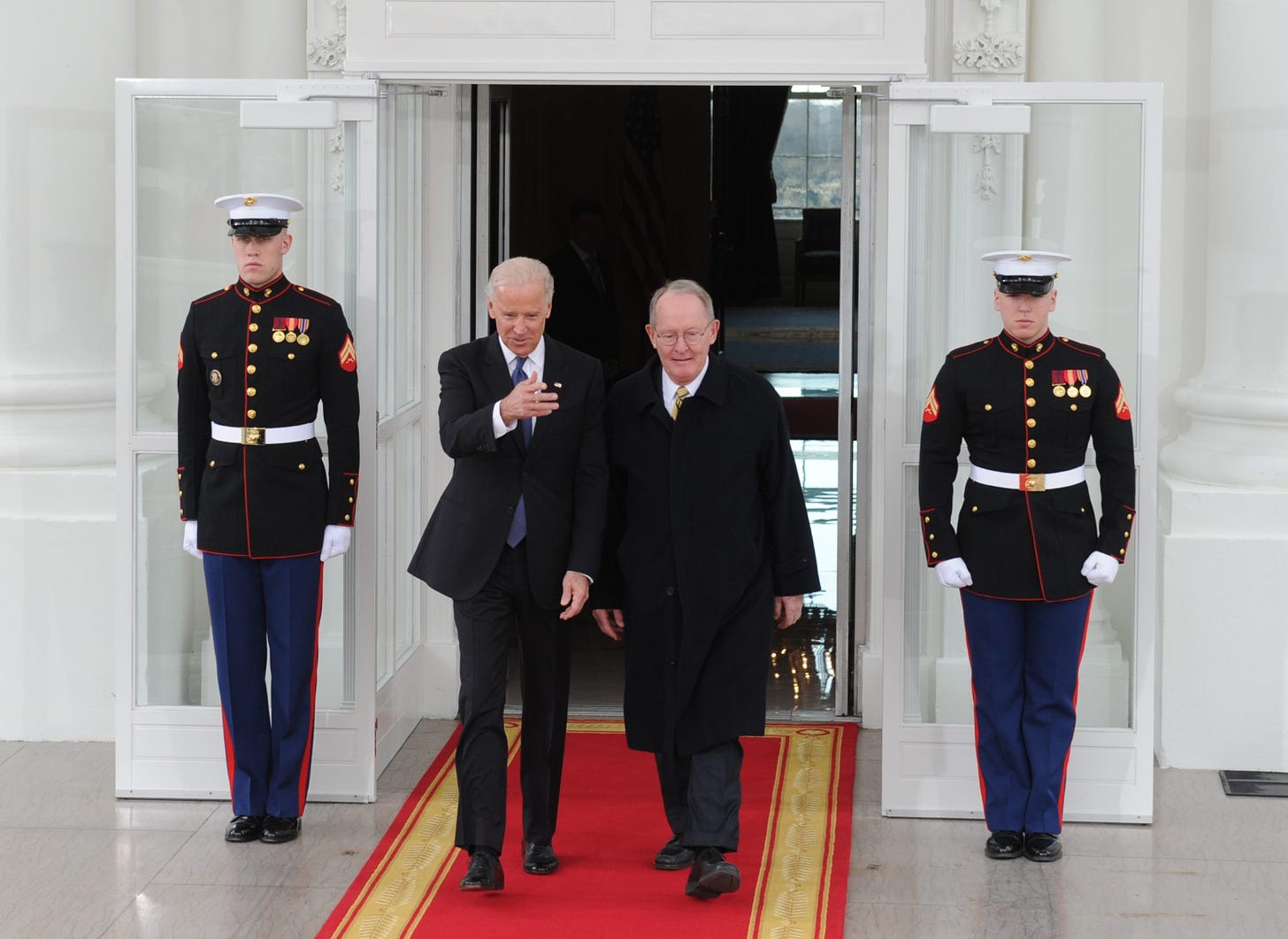Alexander vs. Trump
Lamar Alexander voted against witnesses. But did he also come out against Trump?
With his announcement that he will vote against witnesses, Lamar Alexander has finally come to the defense of Donald Trump.
Or has he?
It is certainly true that Alexander has saved Trump and his supporters from enduring a longer Senate trial with witnesses who would have dotted the i's and crossed the t's of Trump's wrongdoing. But how much of a gift was that, really?
And how much damage has Lamar done to Donald Trump's prospects in November by defending Trump in the manner which he did?
We should stipulate that from the point of view of constitutional process and precedent, having witnesses would have been the right thing to do, and that Alexander's vote is, in that respect, damaging to our constitutional order. But from the point of view of hard-nosed politics, was Alexander's vote against witnesses really a good thing for Donald Trump?
After all, witnesses or no witnesses, Trump was going to be acquitted. Indeed, for all the drama of an additional couple of weeks of trial, the witnesses probably wouldn't have changed public sentiment on acquittal, where a slim majority already wanted to see him removed. Or on Trump, where a firm and persistent majority disapproves of the job he has done as president.
One might add that, politically, a quick conclusion to an evidently sham trail is unlikely to help Trump much. Indeed, it may not help him at all. Trump might have been better off with at least the appearance of a "real" trial—which still would have had a predetermined verdict. Now it will be obvious that what we will have seen was little more than an act of jury nullification by the Republican Senate.
And in any case, we are going to hear from the witnesses—especially John Bolton—in the coming weeks and months. We will learn what they have to say, and their testimony will be decoupled from the heavy lift of removing a president and linked instead to the relatively easier task of defeating a president in his reelection bid.
Meanwhile, in his statement last night, Alexander said three important things.
First, he stipulated that Donald Trump's misbehavior was real:
There is no need for more evidence to prove that the president asked Ukraine to investigate Joe Biden and his son, Hunter; he said this on television on October 3, 2019, and during his July 25, 2019, telephone call with the president of Ukraine. There is no need for more evidence to conclude that the president withheld United States aid, at least in part, to pressure Ukraine to investigate the Bidens; the House managers have proved this with what they call a “mountain of overwhelming evidence.”
Second, Alexander stipulated that Trump's misbehavior was significant:
It was inappropriate for the president to ask a foreign leader to investigate his political opponent and to withhold United States aid to encourage that investigation. When elected officials inappropriately interfere with such investigations, it undermines the principle of equal justice under the law.
Whoa. President Trump has undermined the principle of equal justice under the law! That's not nothing from a Republican senator who isn’t attacking Trump, but rather coming to his defense at this moment of crisis.
And third, Alexander opened an escape hatch for Trump:
[T]he Constitution does not give the Senate the power to remove the president from office and ban him from this year’s ballot simply for actions that are inappropriate . . .
But is this an escape hatch? Or a trap door?
After all, if the Senate does not act because Trump's misbehavior does "not meet the United States Constitution’s high bar for an impeachable offense," it is still . . . misbehavior. And Alexander explicitly states that it is the American people, not the United States Senate, who should decide what to do about this "in the presidential election that begins in Iowa on Monday."
The implication of Alexander's position is that Iowa Republicans should caucus for Joe Walsh Monday, and New Hampshire Republicans should vote for Walsh or Bill Weld next week.
Alexander won't say this part out loud. Presumably because he wants Trump's support for his higher education act reauthorization legislation this year. And because he wants his friend Bill Hagerty to succeed him in his Senate seat.
But this is the logic that follows from Alexander's statement.
And what follows further is this: If it becomes clear that Walsh and Weld will fail in their primary challenges, those Republicans and independents who believe in the principle of equal justice under the law should, to the degree possible under state law, vote in Democratic primaries for the most acceptable Democratic candidate, and then support that candidate in the general election.
Alexander concludes, "Let the people decide.”
His logic suggests they should decide against Trump. For surely the people should not vote for a president who has undermined equal justice under the law.
Surely he cannot vote for a president who has subverted equal justice under the law. And surely he would not wish the American people to do so, either.





